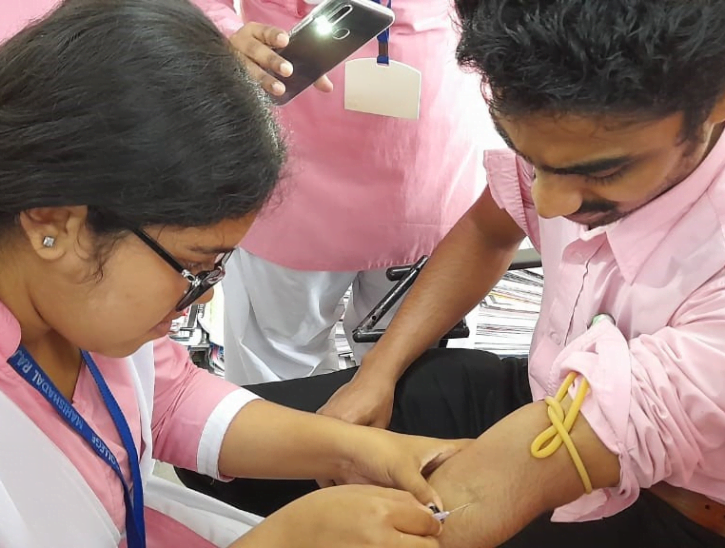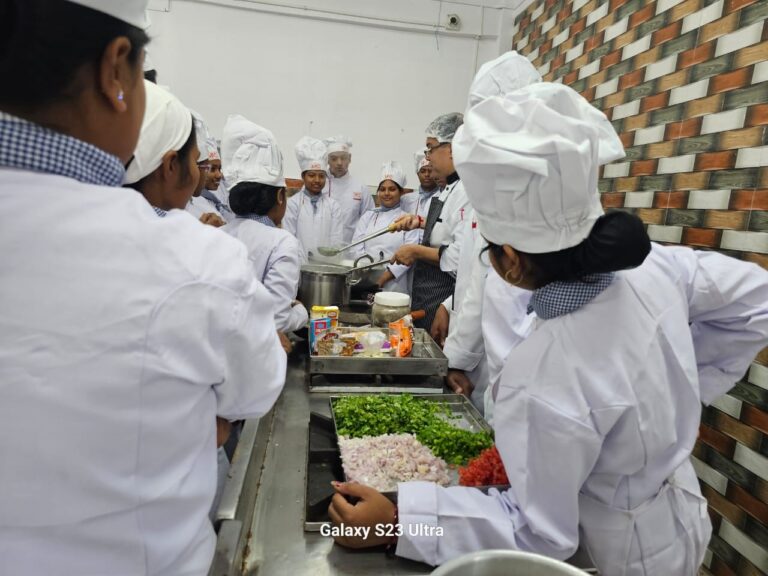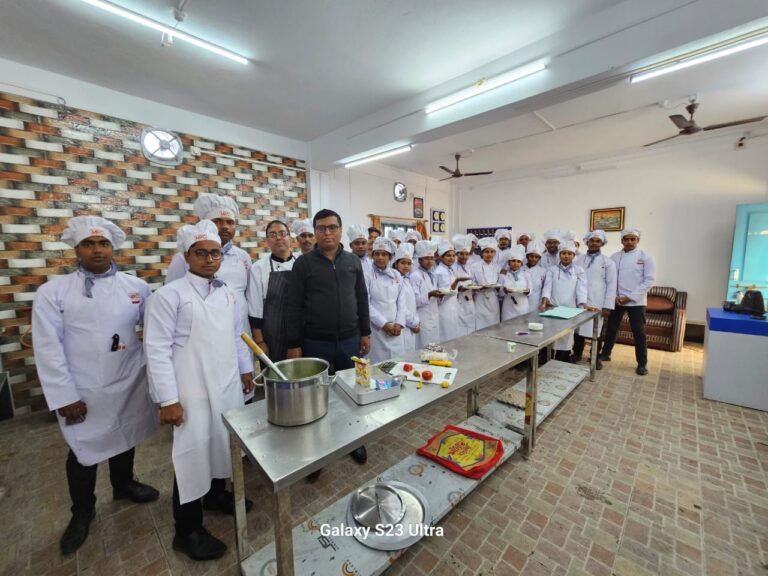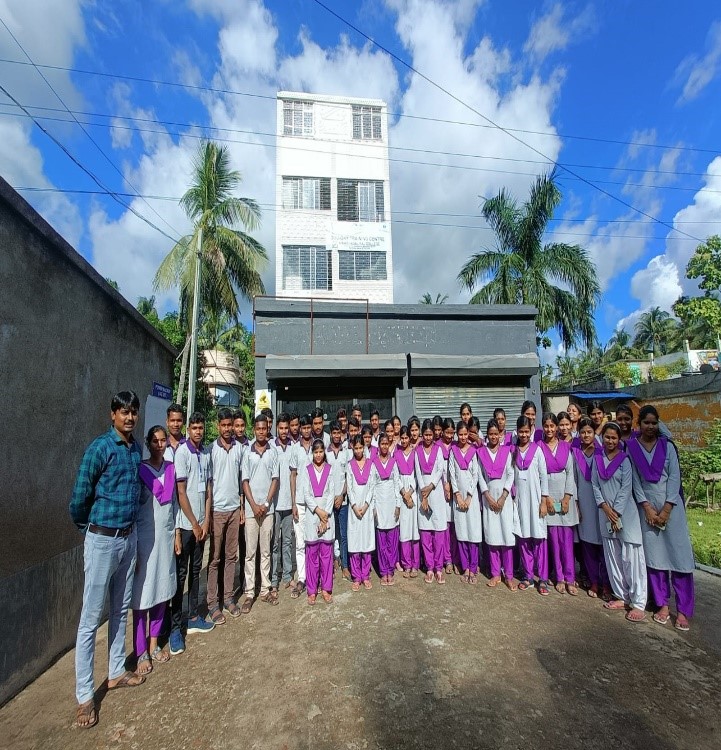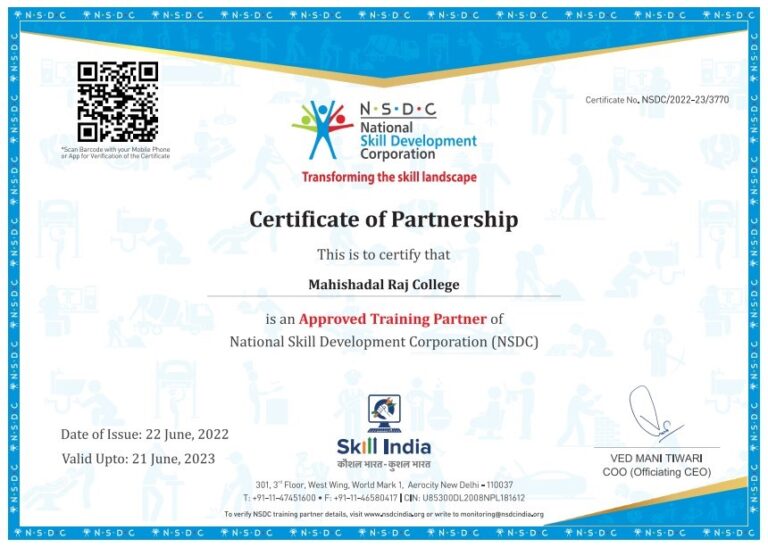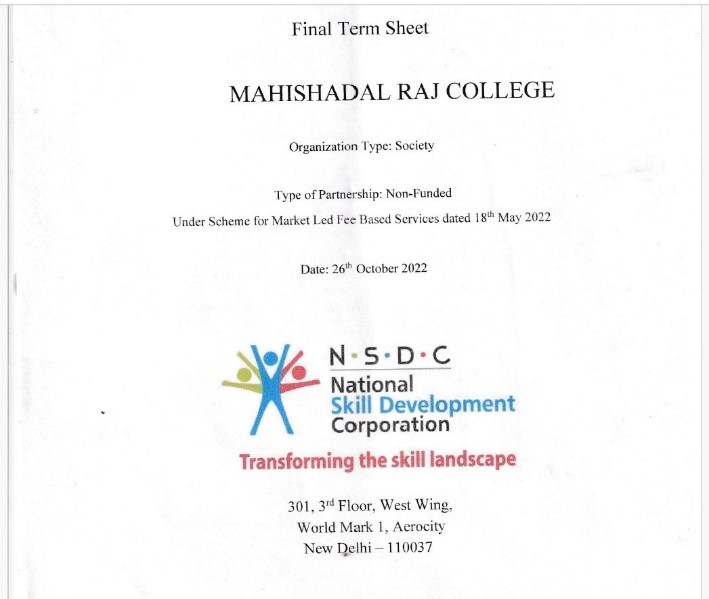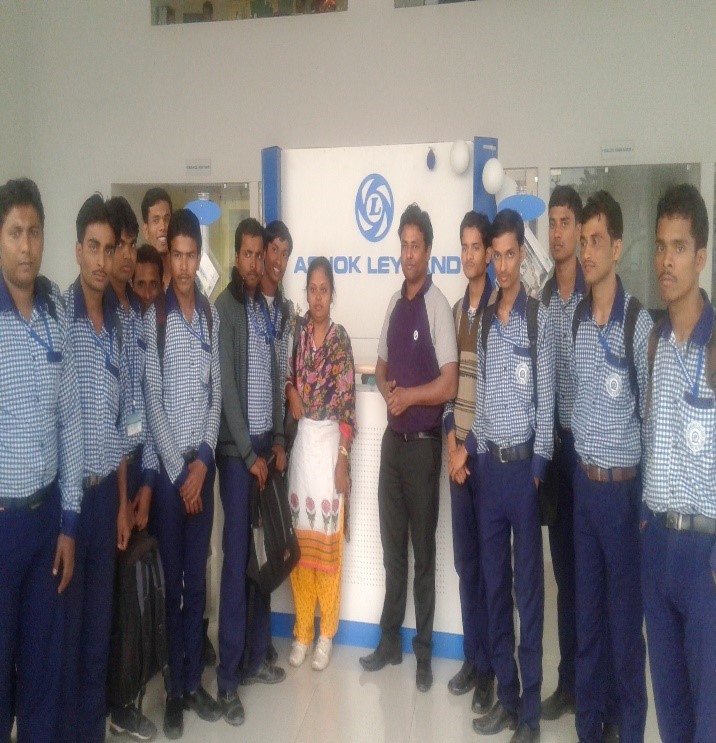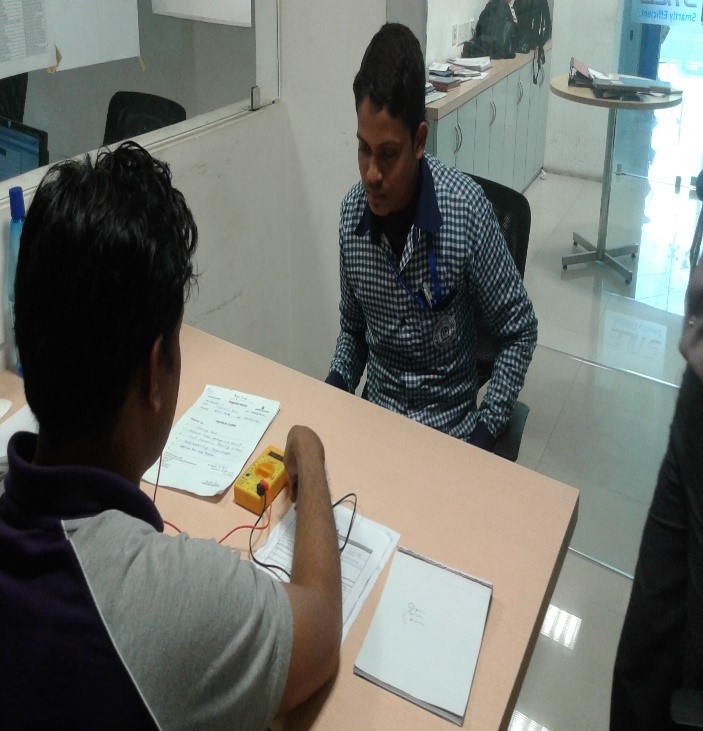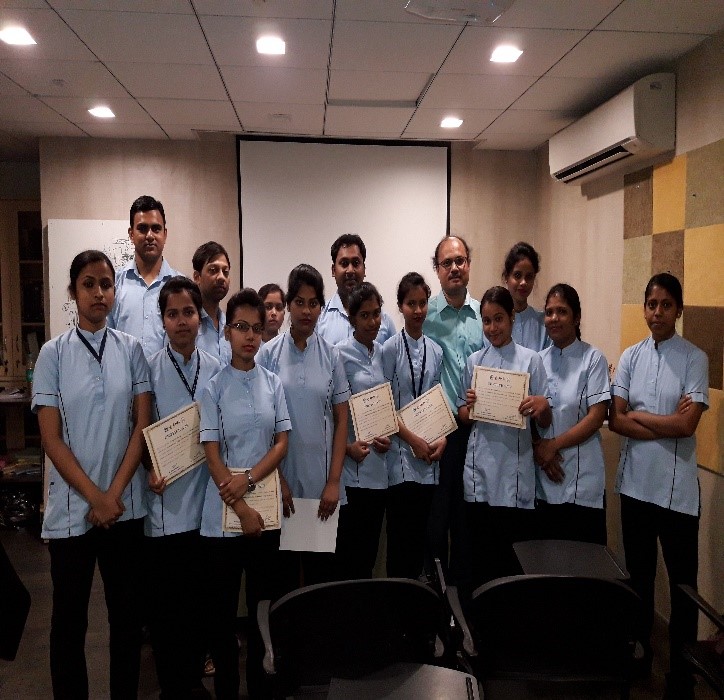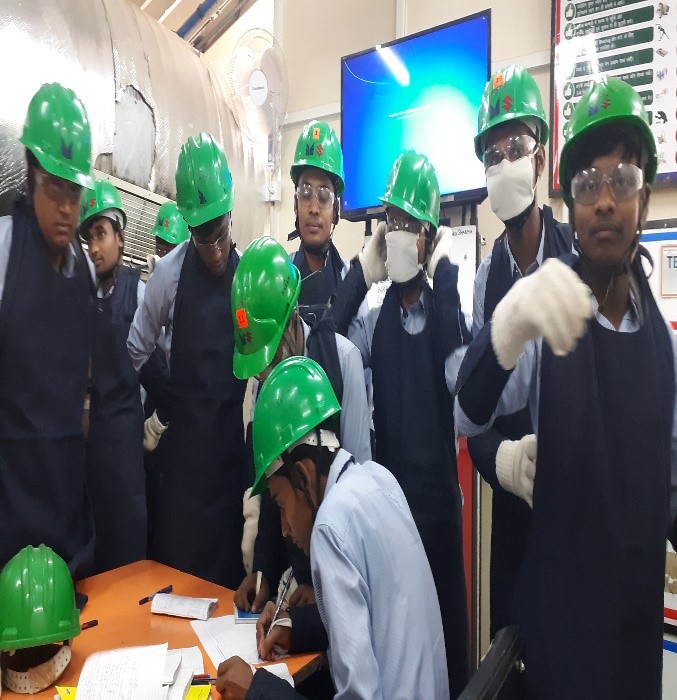Skill Development
India, at present is recognized as one of the youngest nations of the world with over 50% of its population under the age of 30 years. It is estimated that by 2025, India will have 25% of the world’s total workforce. It is also estimated by the same year half of the Indian population will be of working age which could give India edge over other developed countries. However, this may turn into a disaster if a majority of the working age population remains unemployable due to lack of skills.
Since the days of Indian freedom movement, Mahishadal Raj College has a strong bonding and linkage with the community and society as a whole. The college authority realizes the need to diversify its activities in the age of liberalization and globalization and to use its rich infrastructure to cope up with the changing needs of time. The college has tried to harness the full demographic dividend of the country by offering low cost and high quality education locally, that encompasses both vocational skills development as well as traditional coursework, thereby providing opportunities to the learners to move directly to the employment sector. The efforts and conceptualization was immediately recognized when University Grants Commission (UGC) offered to start a One Year Diploma Community College Programme in Automobile Servicing and Health Care trade in 2014.
Mahishadal Raj College is among the first fifty Community Colleges in India, established by the Government of India in December 2013 under the supervision of University Grants Commission, to materialize the dream of ‘Skilling India’ and expand vocational studies at the college level following the guidelines of National Skills Qualification Framework (NSQF). In the following year, Mahishadal Raj College imprinted its name in the annals of history of Indian academics, when the Honourable Prime Minister of India, in his historic 69th Independence Day Speech declared the name of the college as Deen Dayal Upadhyay KAUSHAL Kendra, a Centre of Excellence in Skill Development to give further push to vocational education on an even larger scale. The Centre got approval to pursue Diploma, B.Voc & M.Voc Courses in Health Care, Automobile, Medical Laboratory Technology, Hospitality Management and Retail Management & Operations under the affiliation of Vidyasagar University. There are approximately 850 students studying B.Voc. Degree courses in the above mentioned trades each year.
Mahishadal Raj College is the only government sponsored college in the state of West Bengal to get the residential training programme of DDUGKY in December 2020. The programme is fully sponsored by the Ministry of Rural Development & Panchayati Raj, Government of India. The college is also the registered Vocational Training Provider (VTP) of Paschim Banga Society for Skill Development (Government of West Bengal) for imparting skill based training in as many as nineteen trades ranging from Agriculture to Health Care. The college has successfully trained more than 2000 candidates in numerous NSQF aligned short term courses under the Utkarsh Bangla Scheme of PBSSD. The College is also an Approved Testing Centre of SDI Scheme under DGT, Ministry of Skill & Entrepreneurship, Government of India.
Mahishadal Raj College has become the first Government Sponsored College in the state of West Bengal to become the official Training Partner of National Skill Development Corporation (NSDC) in the month of June, 2020.
The objectives of such partnership can be listed as –
- To create skilled manpower for industry requirements at various levels.
- Matching education with employment, thereby enhancing employability of the students.
- To work for co-ordination between the higher education system and industry to become a Centre of Excellence for Skill Developmentin specialized areas.
- Ensuring participation of industries at all stages of the training program to (a) make them industry responsive (b) keep pace with technological advancements in industry and (c) expand its knowledge to produce improved workforce suitable for labour market emerging out of industrial scenario of the State.
- To up-skill general graduates of the college with some vocational skill as per industry requirement.
- To maintain ‘Labour Market Information’ for respective regions in coordination with other government agencies and industry associations
- To develop and collate curriculum, content and learning materialsfor skill development in different sectors.



